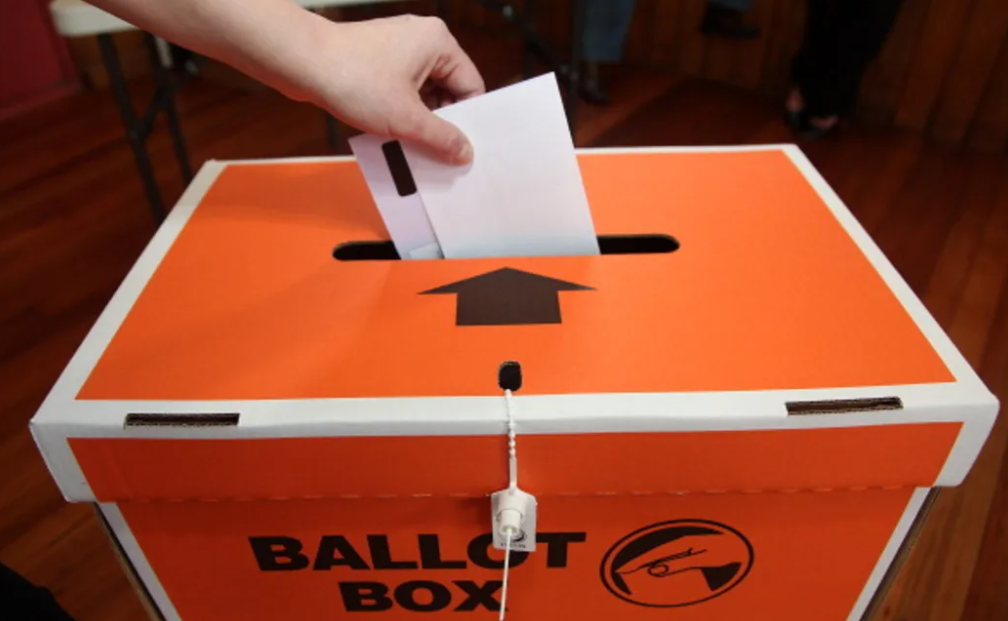Top Stories
New Zealand’s Electoral Amendment Bill Advances Despite Opposition

The New Zealand government has moved forward with the **Electoral Amendment Bill**, which recently passed its first reading in the House. This legislation aims to implement significant changes to the electoral process, with advocates claiming it will enhance the timeliness and integrity of election results.
The bill proposes a series of adjustments, including the termination of same-day voter enrolment, the prohibition of prisoner voting, and modifications to election day practices, such as restrictions on offering free food. Additionally, it seeks to expand the limits on anonymous political donations. According to **Justice Minister Paul Goldsmith**, these reforms are necessary to address declining confidence in the electoral system and to ensure it remains resilient under pressure.
Goldsmith emphasized that while the electoral system has served New Zealand well, it requires “constant maintenance.” He pointed out that recent elections have highlighted inefficiencies, particularly in the counting process. “This bill overhauls a number of our dated and unsustainable electoral laws,” he stated, asserting that these changes will lead to quicker election results and clearer rules for voters.
Critics of the bill, however, voiced strong objections during the parliamentary debate. **Duncan Webb**, the justice spokesperson for the Labour Party, described the amendments as a troubling step away from democratic principles. He argued that the proposed changes would create barriers to voting, making it more difficult for citizens to participate in the electoral process. “Politicians should be making it easier for people to vote, not harder,” Webb remarked, referencing a report by **Attorney-General Judith Collins** that raised concerns about the bill’s implications for citizens’ rights.
Collins’ report was particularly critical, suggesting that the amendments could undermine public confidence in the electoral system. Webb noted, “The Attorney-General frankly slated this bill,” highlighting her strong opposition to certain provisions, such as the freezing of voter registration prior to elections.
Supporters of the bill, including **Todd Stephenson**, the ACT Party justice spokesperson, defended the changes as necessary. He contended that the shift in the enrolment deadline from election day to 13 days prior is a modest yet essential reform. “Voting in a democracy does come with some responsibilities,” Stephenson stated, asserting that citizens should be proactive in ensuring their registration.
The **Green Party’s** co-leader, **Marama Davidson**, countered this perspective, arguing that the bill would not achieve its stated goals. She expressed concern that the amendments seek to restrict access to the electoral process for specific groups, undermining the essence of a fair democracy.
Furthermore, **Debbie Ngarewa-Packer**, co-leader of **Te Pāti Māori**, criticized the bill as a cynical attempt to silence certain communities. “It’s not a coincidence that the very communities who would be silenced are the same communities that wouldn’t vote for this government,” she claimed, referencing recent governmental actions that have affected Māori representation.
The bill has now moved on to the select committee stage, having garnered support from coalition partners including the **National Party**, **ACT**, and **New Zealand First**. As the debate continues, the implications of these changes for New Zealand’s electoral landscape remain a topic of significant discussion among lawmakers and the public alike.
With these proposed amendments, the future of electoral participation in New Zealand stands at a critical juncture, raising questions about the balance between maintaining electoral integrity and ensuring accessibility for all voters.
-

 Sports2 months ago
Sports2 months agoNetball New Zealand Stands Down Dame Noeline Taurua for Series
-

 Entertainment2 months ago
Entertainment2 months agoTributes Pour In for Lachlan Rofe, Reality Star, Dead at 47
-

 Entertainment3 weeks ago
Entertainment3 weeks agoNew ‘Maverick’ Chaser Joins Beat the Chasers Season Finale
-

 Sports2 months ago
Sports2 months agoSilver Ferns Legend Laura Langman Criticizes Team’s Attitude
-

 Sports2 days ago
Sports2 days agoEli Katoa Rushed to Hospital After Sideline Incident During Match
-

 Politics1 month ago
Politics1 month agoNetball NZ Calls for Respect Amid Dame Taurua’s Standoff
-

 Entertainment2 months ago
Entertainment2 months agoKhloe Kardashian Embraces Innovative Stem Cell Therapy in Mexico
-

 World3 months ago
World3 months agoPolice Arrest Multiple Individuals During Funeral for Zain Taikato-Fox
-

 Sports3 months ago
Sports3 months agoGaël Monfils Set to Defend ASB Classic Title in January 2026
-

 Entertainment1 month ago
Entertainment1 month agoTyson Fury’s Daughter Venezuela Gets Engaged at Birthday Bash
-

 Sports1 month ago
Sports1 month agoHeather McMahan Steps Down as Ryder Cup Host After Controversy
-

 World2 weeks ago
World2 weeks agoSevere Winds Hit New Zealand, Over 100 Flights Canceled















